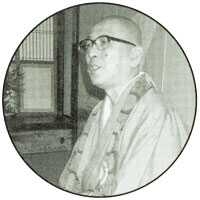
Soko Morinaga Roshi, (“Dharma Talk”) was ordained as a Zen monk in Japan in 1948 and trained in the monastery at Daitokuji, eventually receiving the seal of dharma transmission from Sesso Ota Roshi. He died in 1995. An excerpt from the forthcoming English translation of his book, From Novice to Master, appears in this issue of Tricycle. Translator Belenda Yamakawa remarks: “I think parts of Morinaga’s book will be inspiring for people who are already practicing. But I also see it as a great introductory book – a “why practice” for people who are open but still need an explanation deeply rooted in experience and which still soundly appeals to reason!”

Poet Jane Hirshfield writes of her essay on Basho (“Basho As Teacher”): “The first book I ever purchased, at age eight or nine, was a collection of Japanese haiku. I could not have named then what I was drawn to, yet looking back I can say that book must have offered my first glimpse of a nondual perception. The study of Japanese poetry led me both into poem-making and into Buddhist practice. I’m grateful for the chance to articulate here some small part of what Basho’s poems and teachings gave me.”
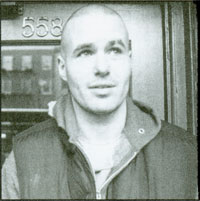
In “Zen Master Marlowe,” Noah Buschel considers the Zen equanimity of detective Philip Marlowe in Raymond Chandler’s mystery novels. “After September 11, there was a lot of finger pointing going on. I felt like I needed to read something that reminded me of our oneness, and that related to these times. Chandler understands that conflict between right and wrong is, in a sense, a sickness of the mind. I’m not very into the whole who-dun-it aspect to mystery, and I don’t think Chandler is, either. I feel like his main message is: We-all-dun-it.”
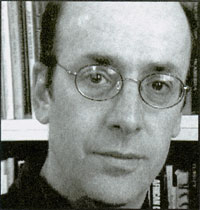
Neil Gordon, whose essay “Children and Dharma: An Introduction” appears here, reflects: “Like meditation, the insights of parenting are largely learned without being taught. As dharma teachers guide us in a process of self-discovery, so do we guide our children’s explorations of their own minds and capabilities. And as a meditator seeks not to summon insight, but rather to create the circumstances in which insight can arise, parents try to create the circumstances in which the mysterious processes of self-discovery can occur in their child.”
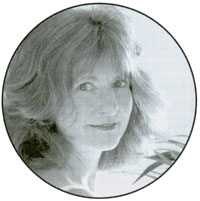
Katy Butler writes about a radical form of psychotherapy, developed by psychologist Marsha Linehan, that employs Zen principles (“On the Borderline”). She tells us, “What I loved about Marsha’s work was its positive integration of what the West has to offer with what the East has to offer. In a sense, I’d always felt myself conflicted: Does one accept things as they are, and practice non-clinging, like a “good Buddhist”? Or does one change the things one can? In essence, Linehan’s work said to me that a full and realistic life requires both sets of skills.”
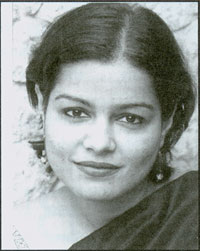
Journalist Swati Chopra writes of her experience interviewing the Karmapa: “The Karmapa represents a new and potentially important energy for those who are concerned with the Tibetan cause and the dharma. Interviewing him, though, was not easy. He is entombed by an Indian security presence that may be trying to protect him, but from what? Kidnapping? Escape? Chinese agents? I found a quality in this old young person that was textured with drama, gentleness, and wisdom.” ▼
Thank you for subscribing to Tricycle! As a nonprofit, we depend on readers like you to keep Buddhist teachings and practices widely available.